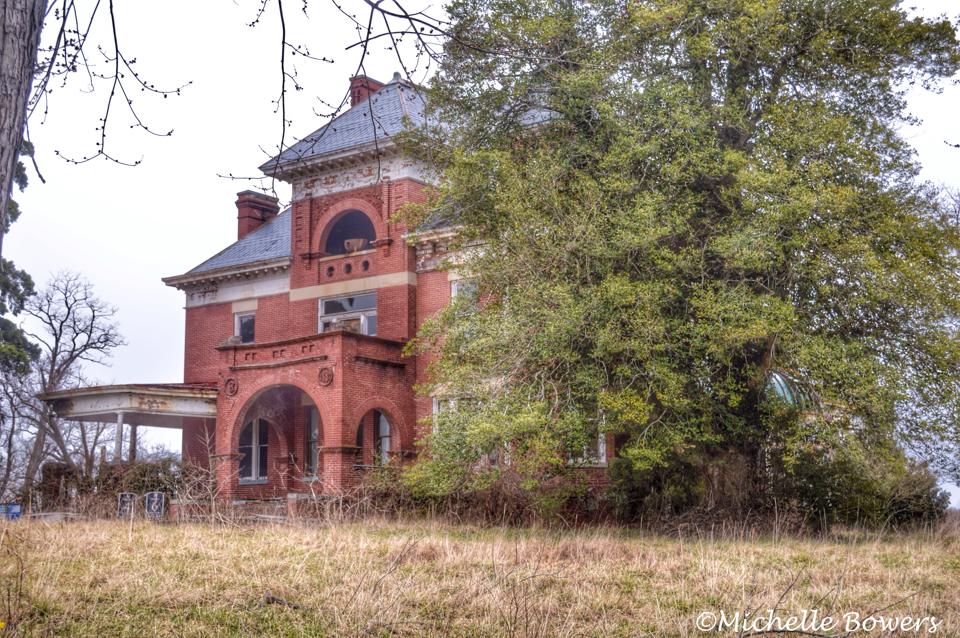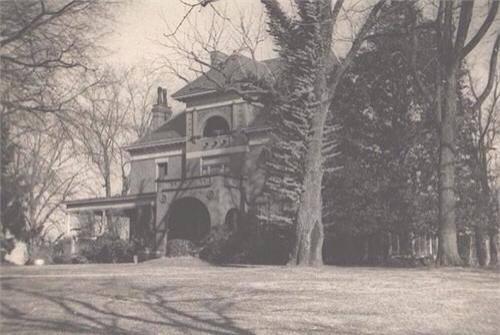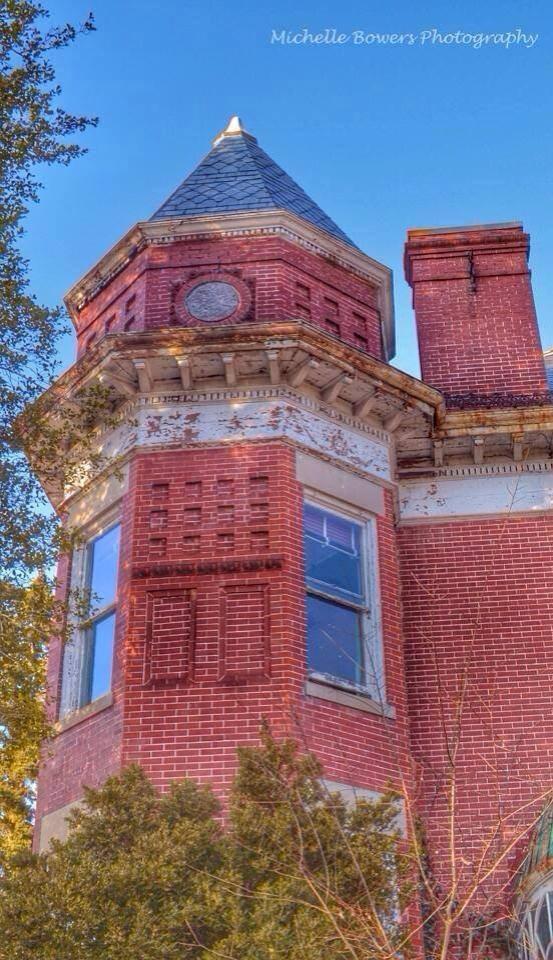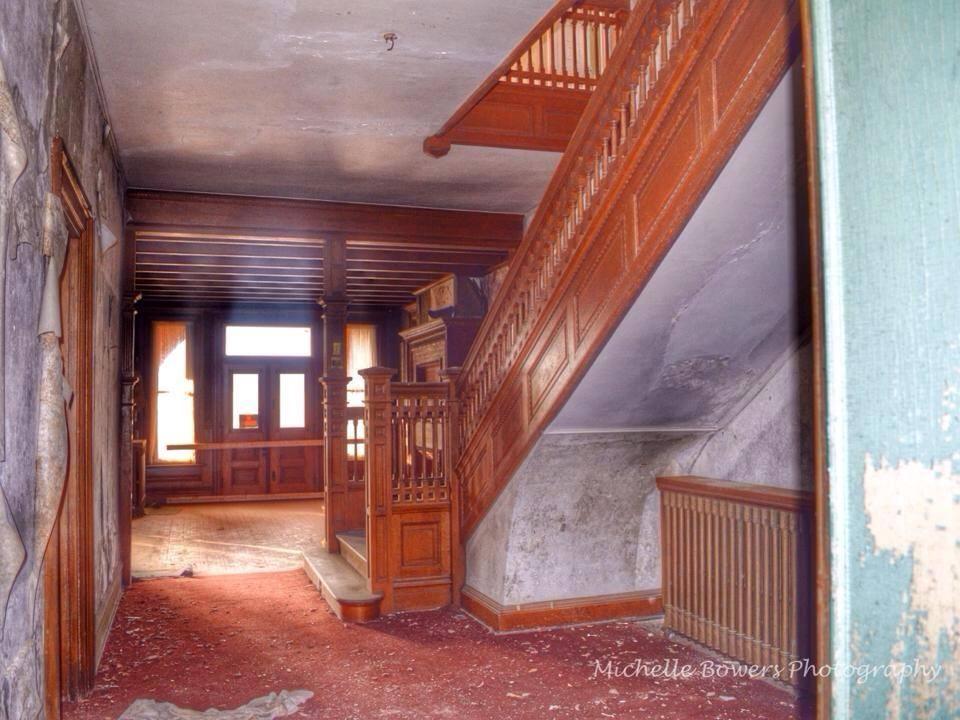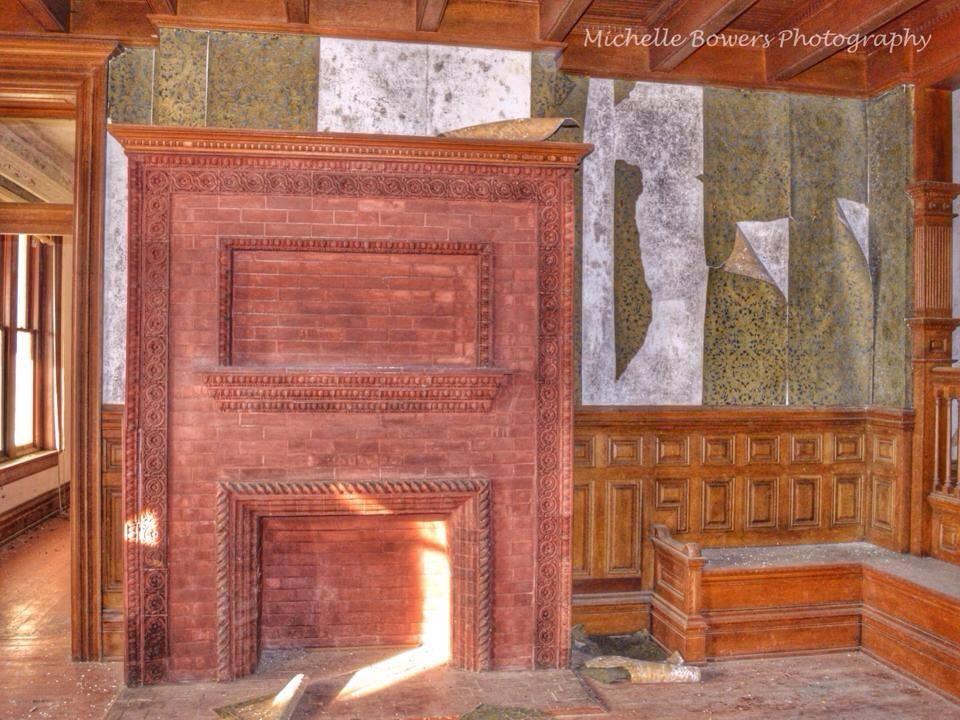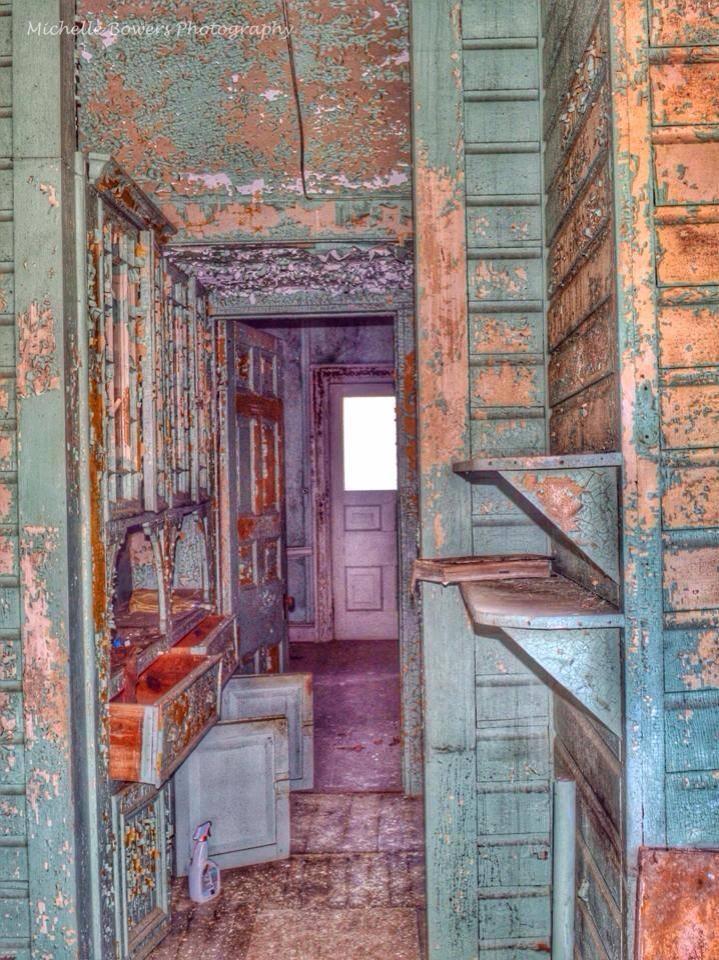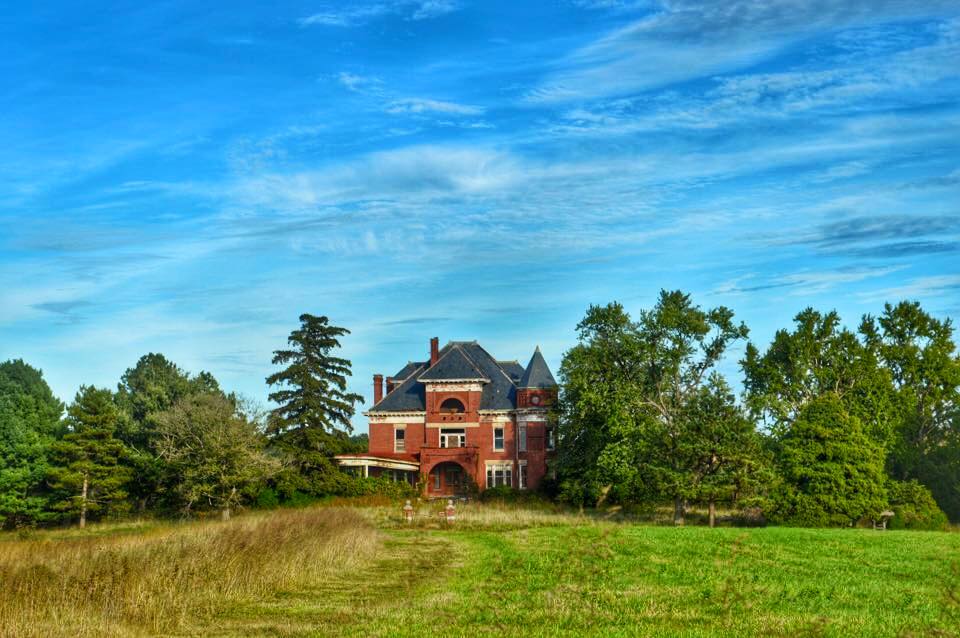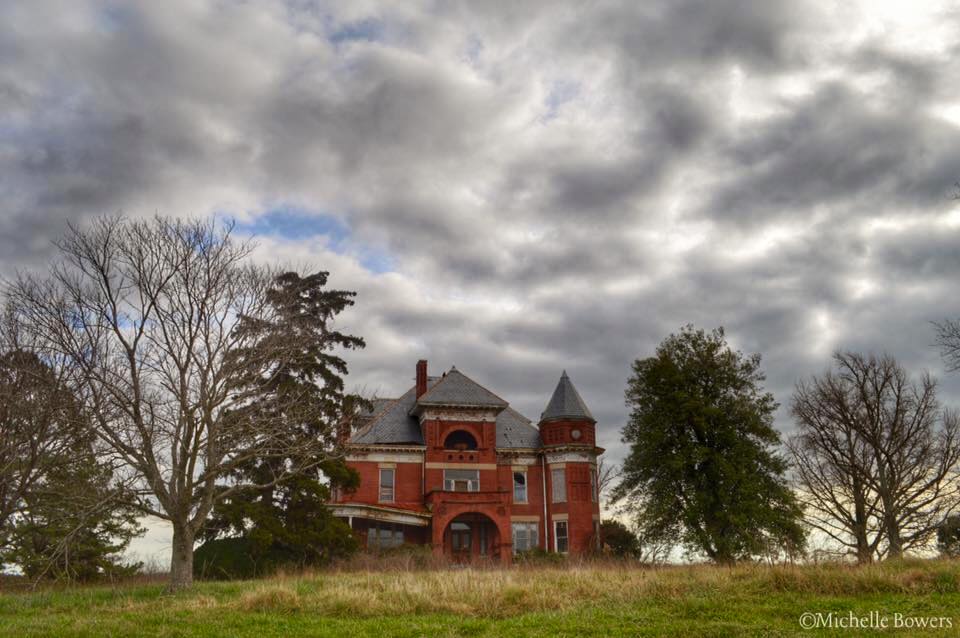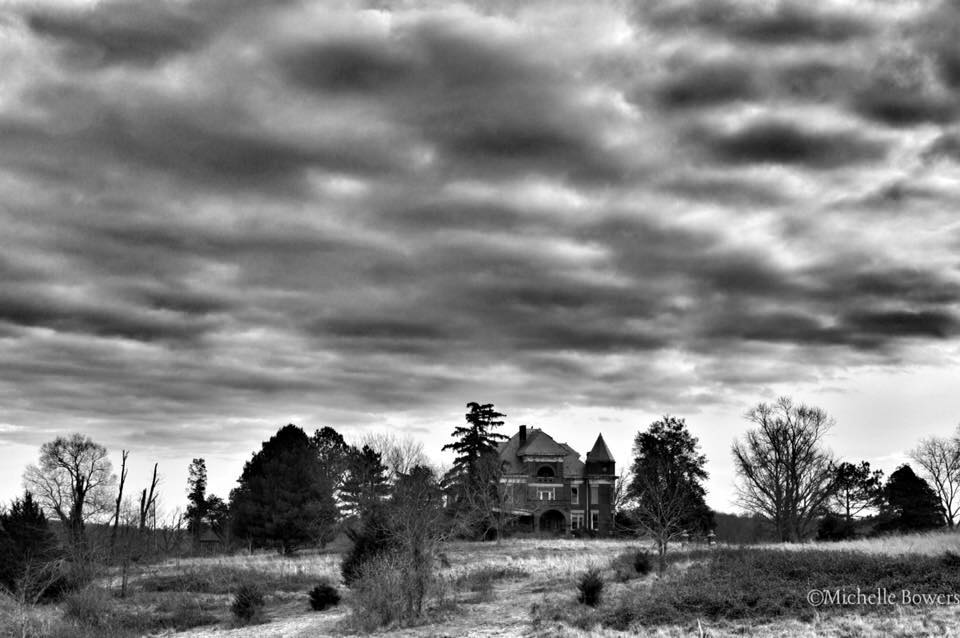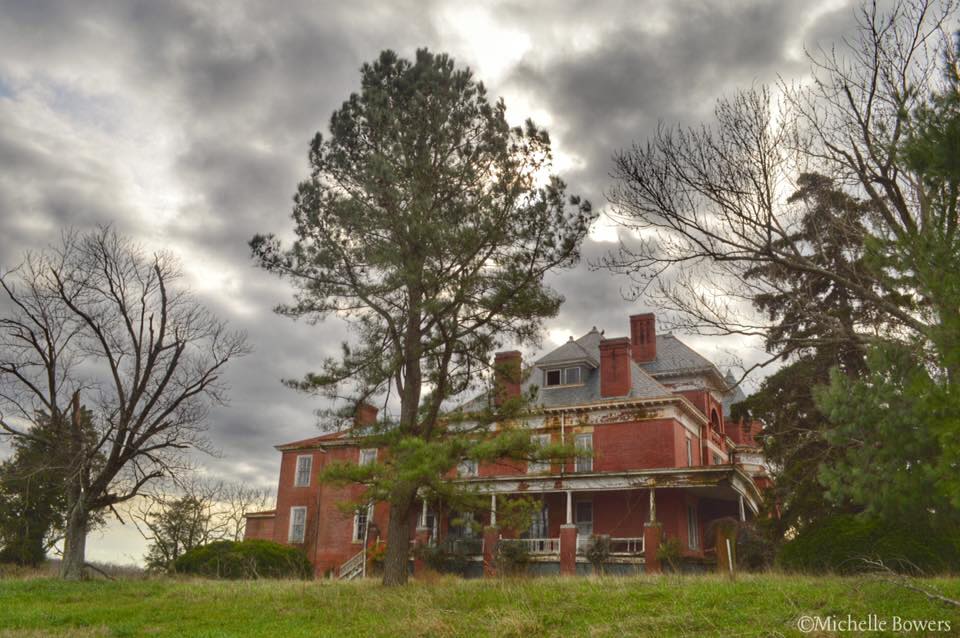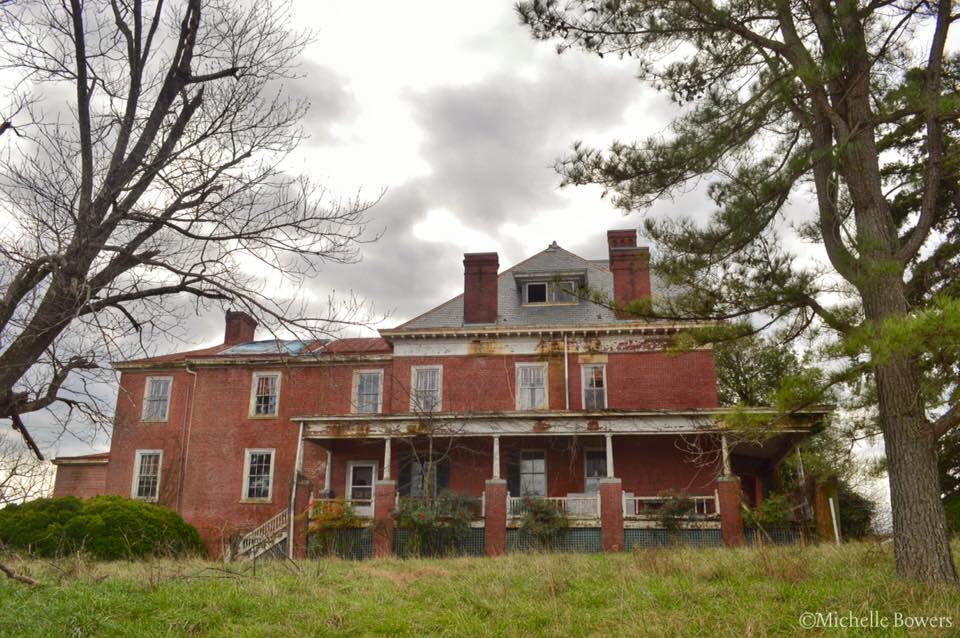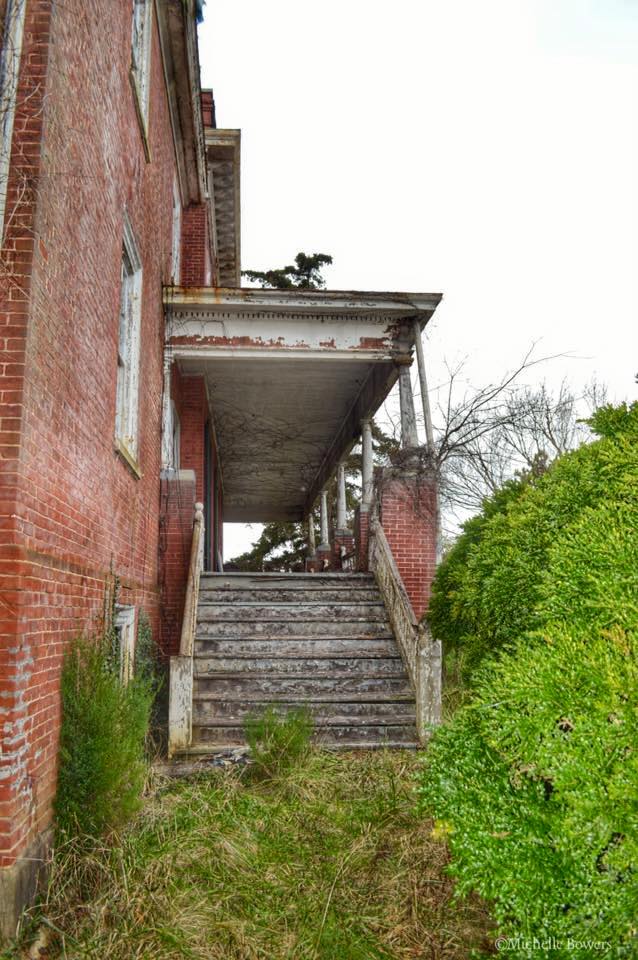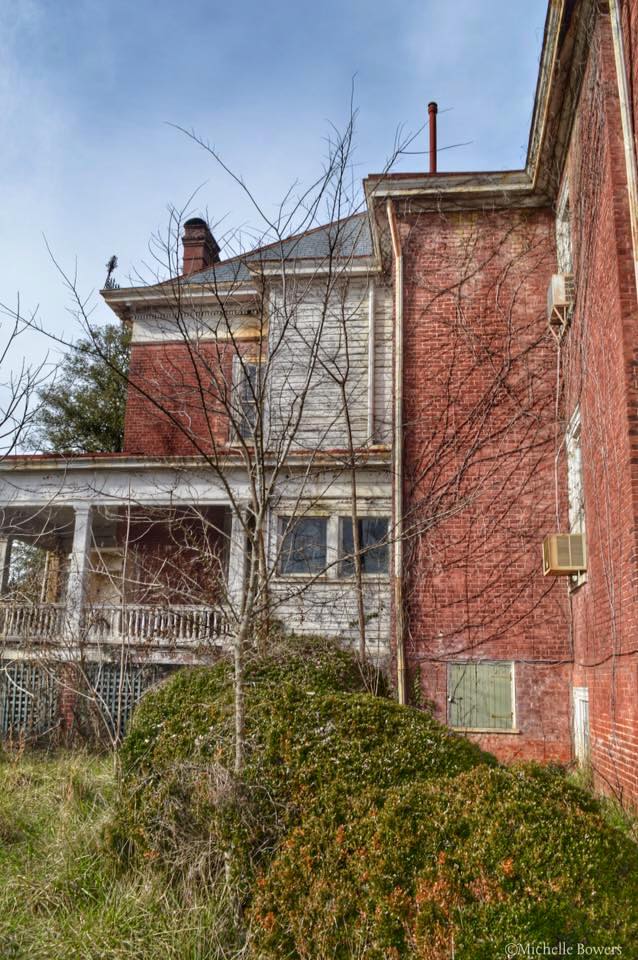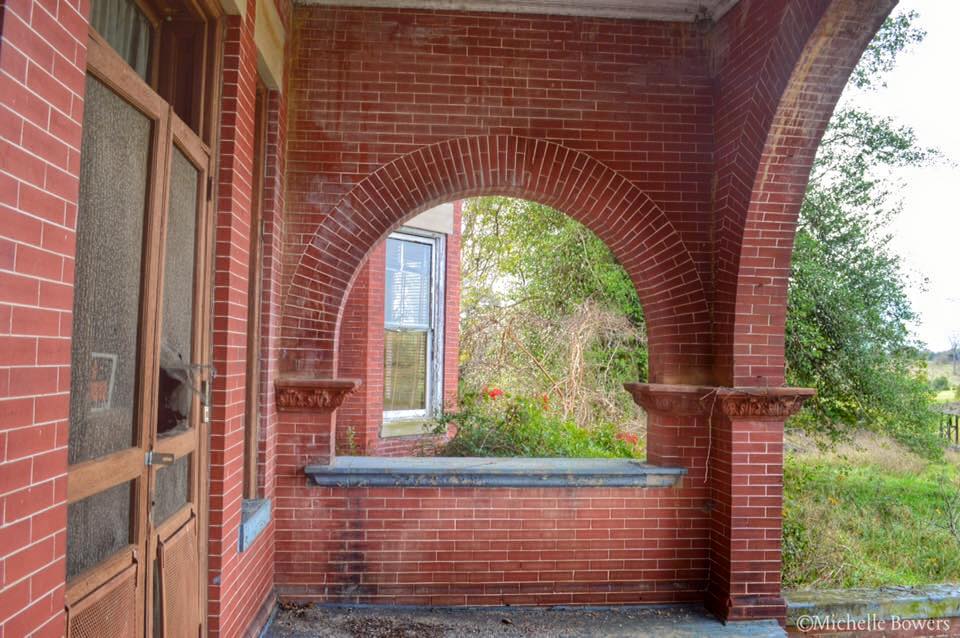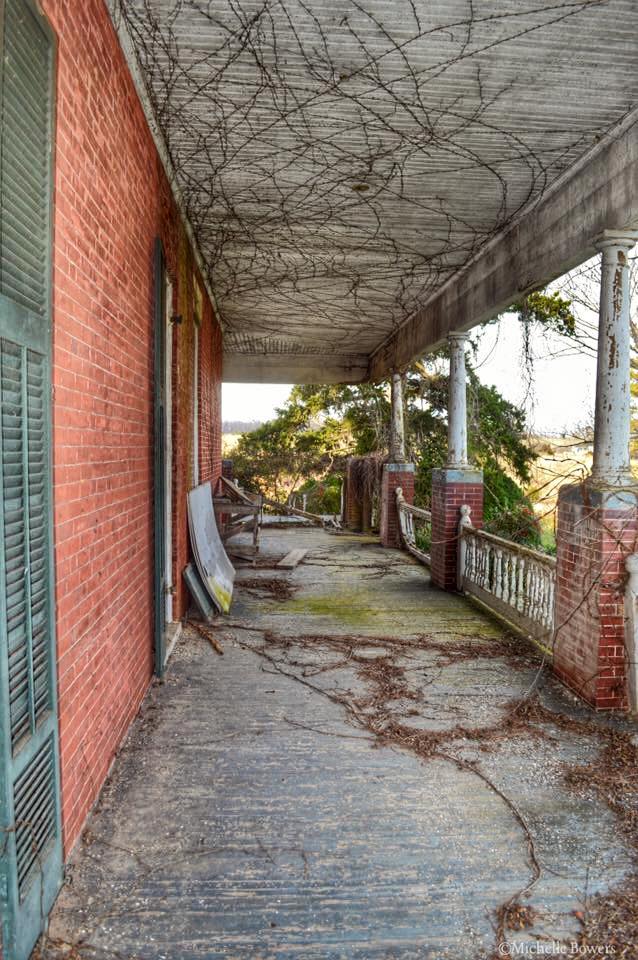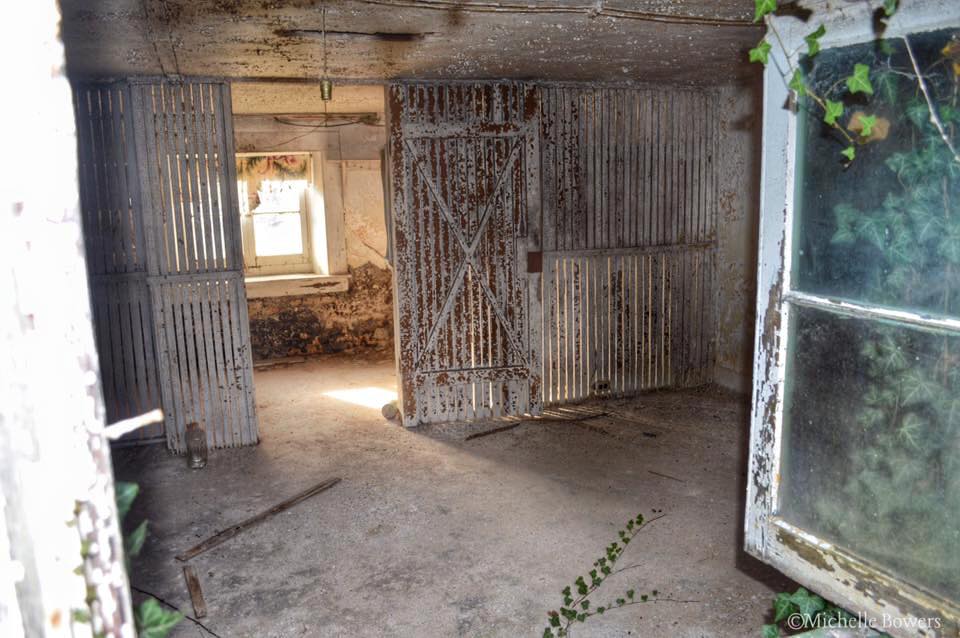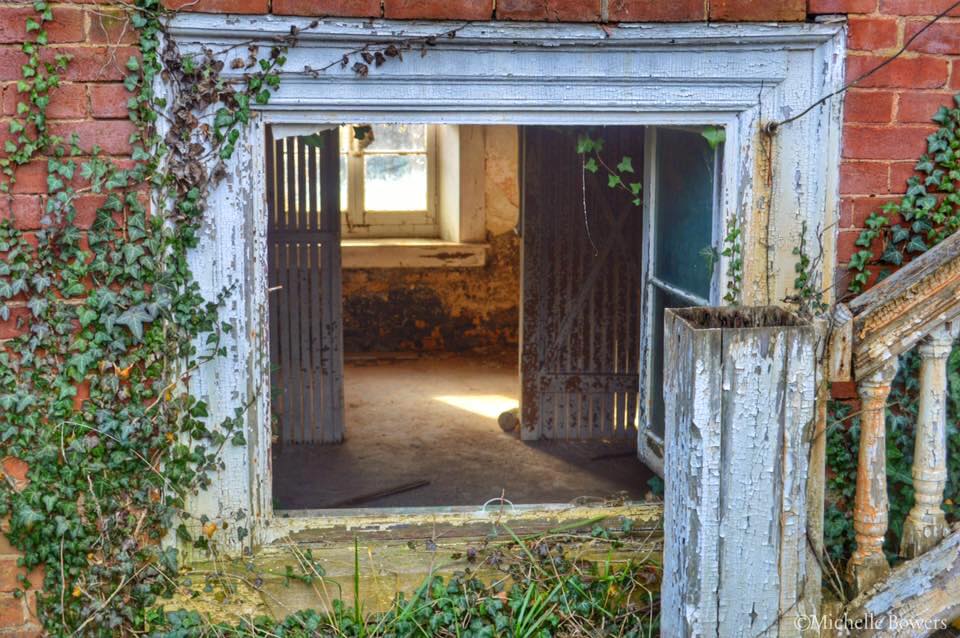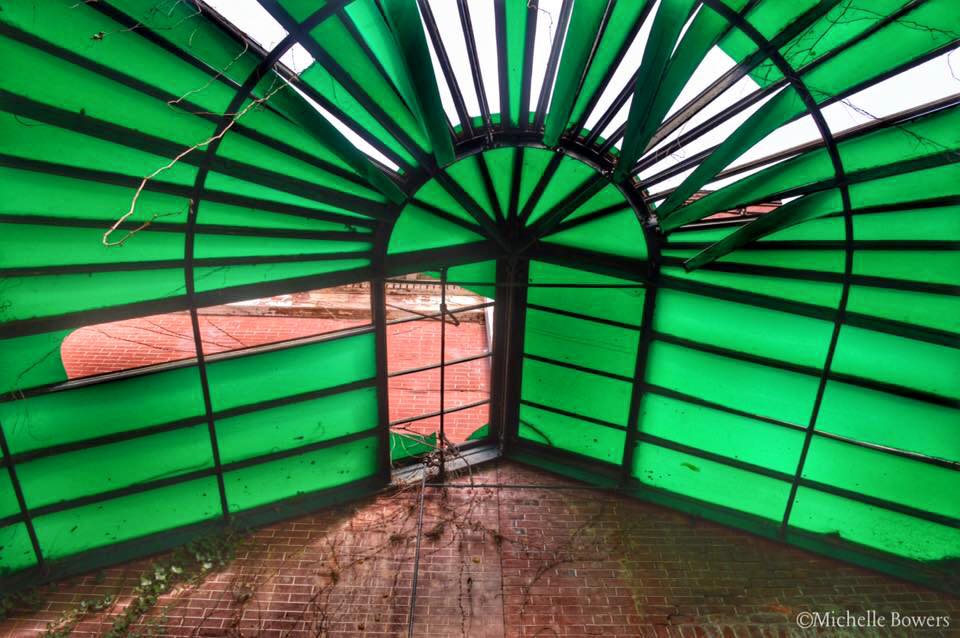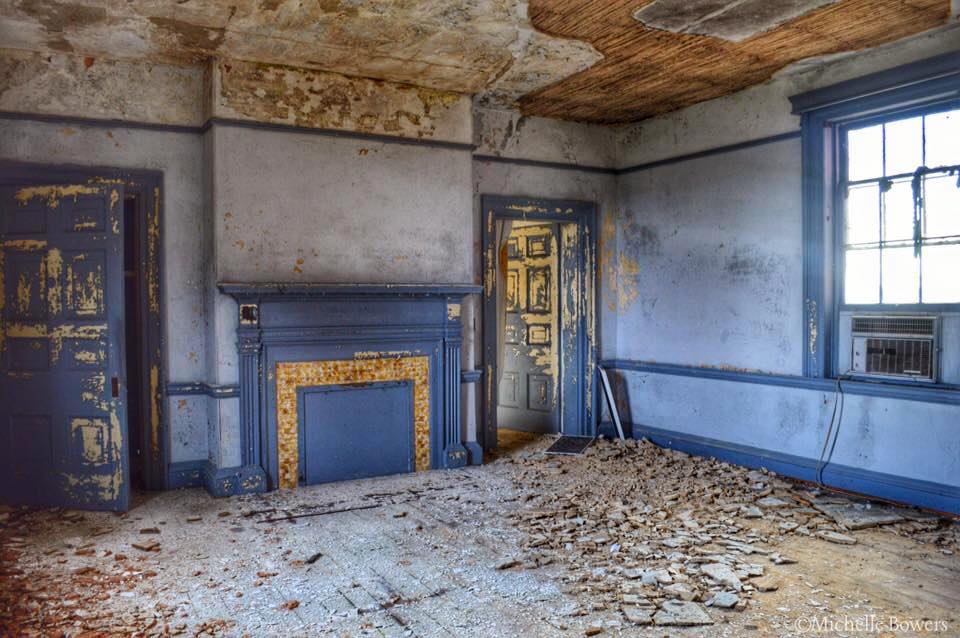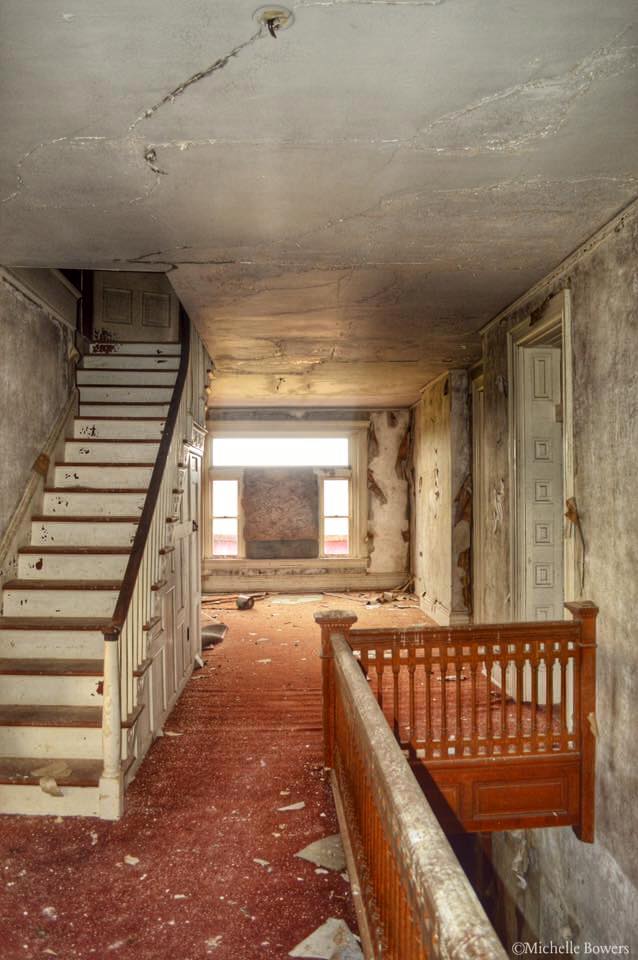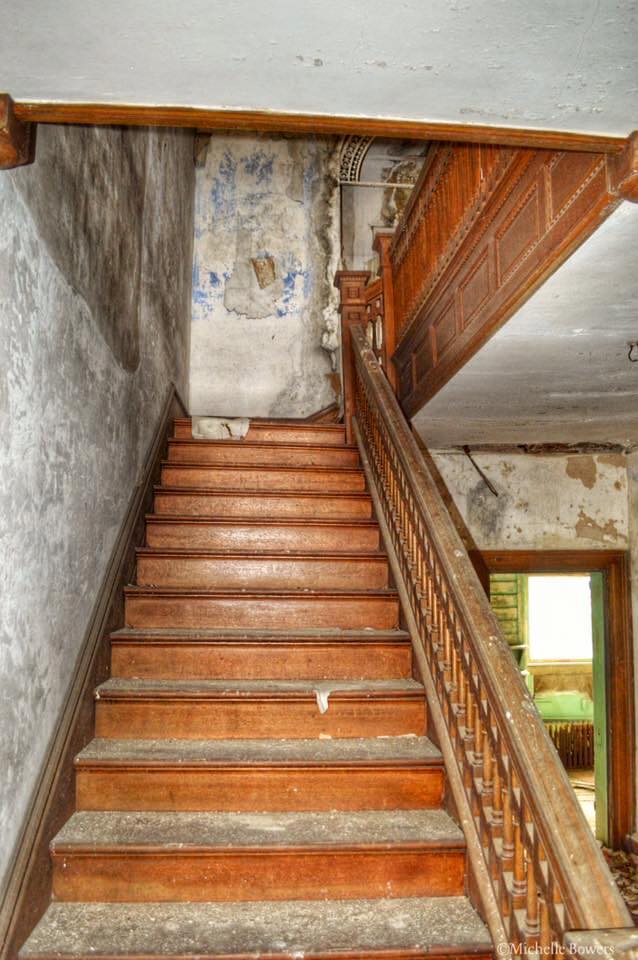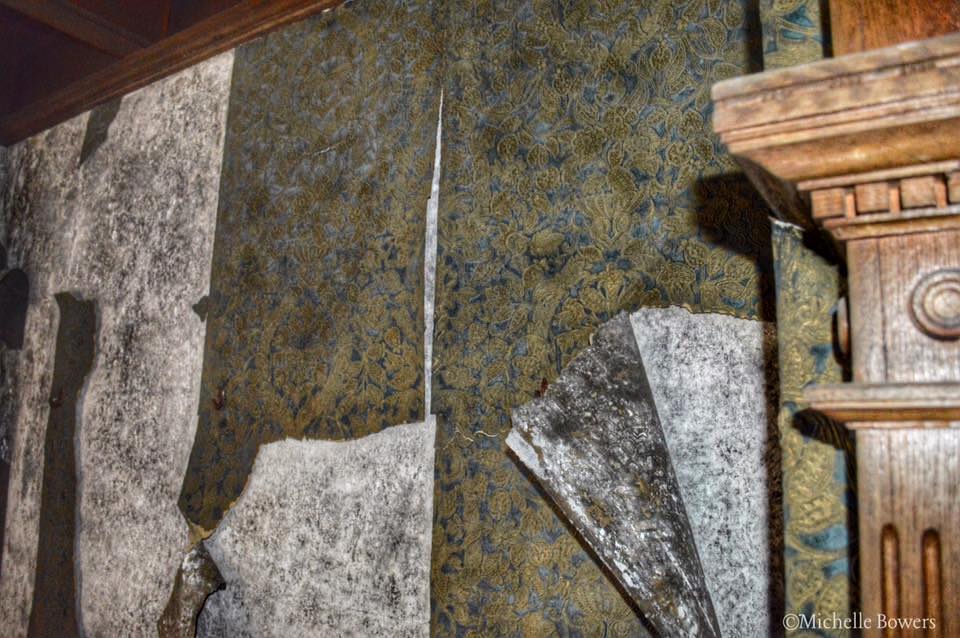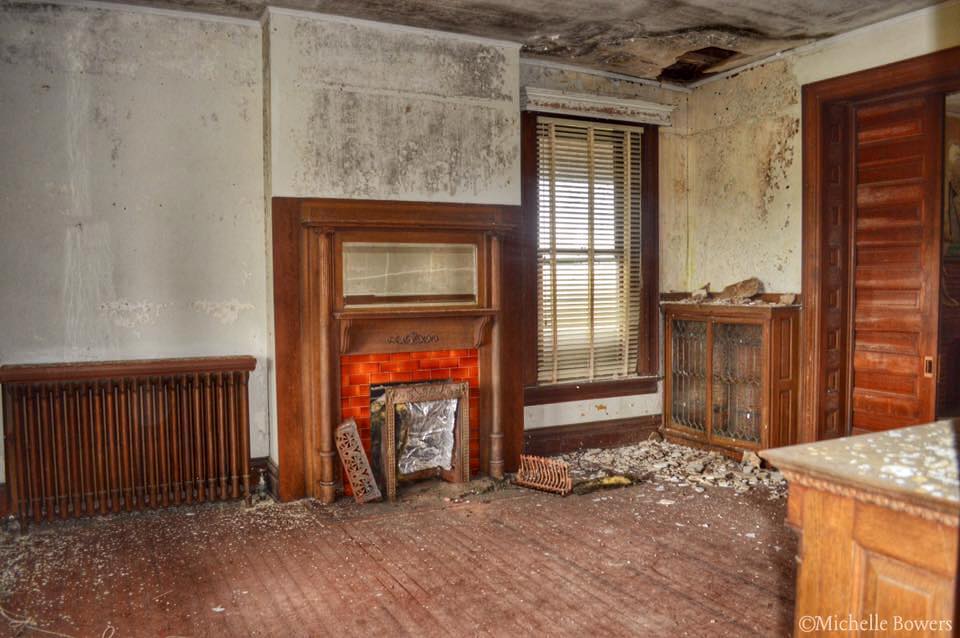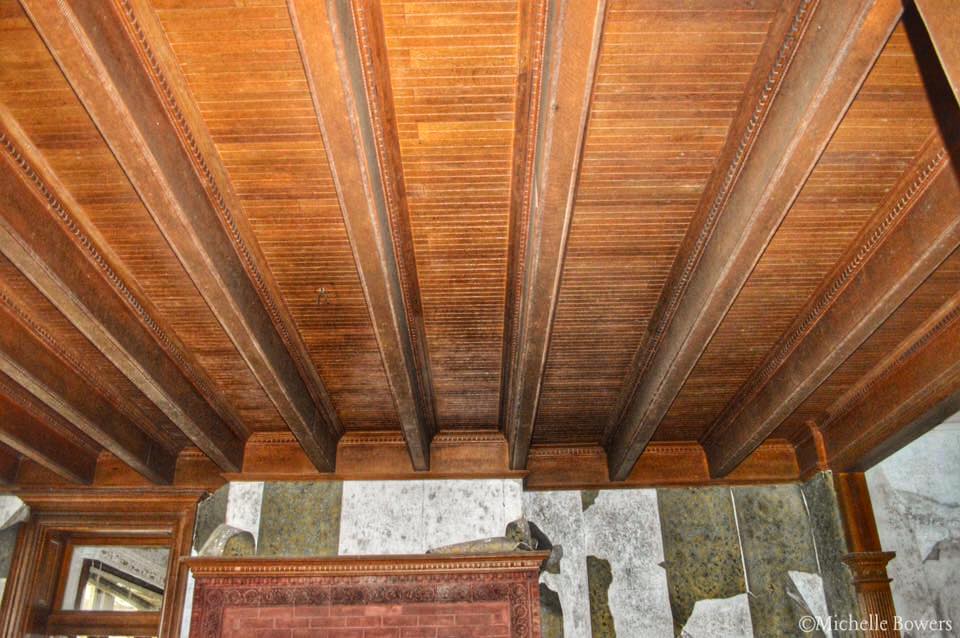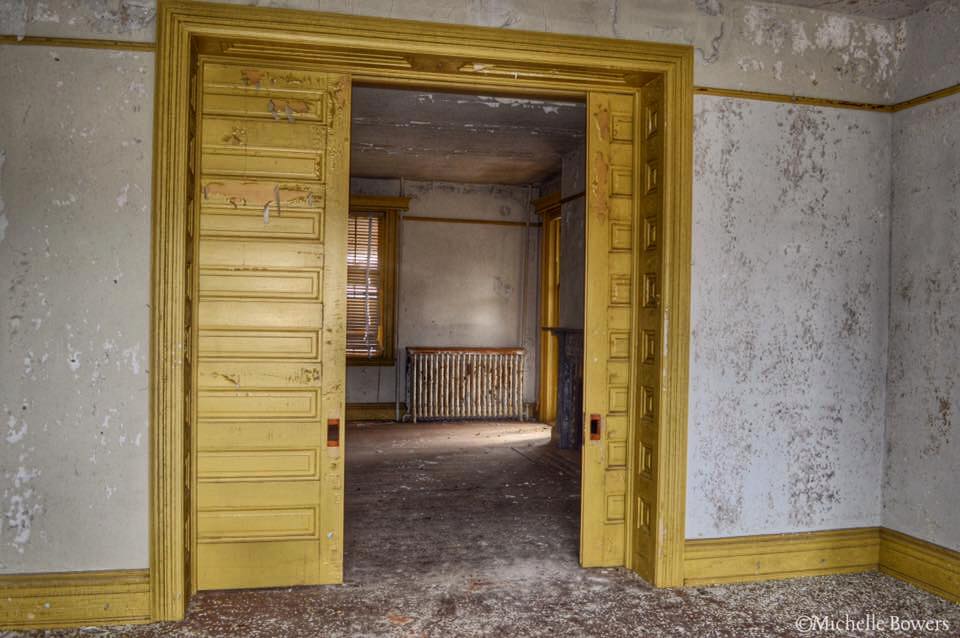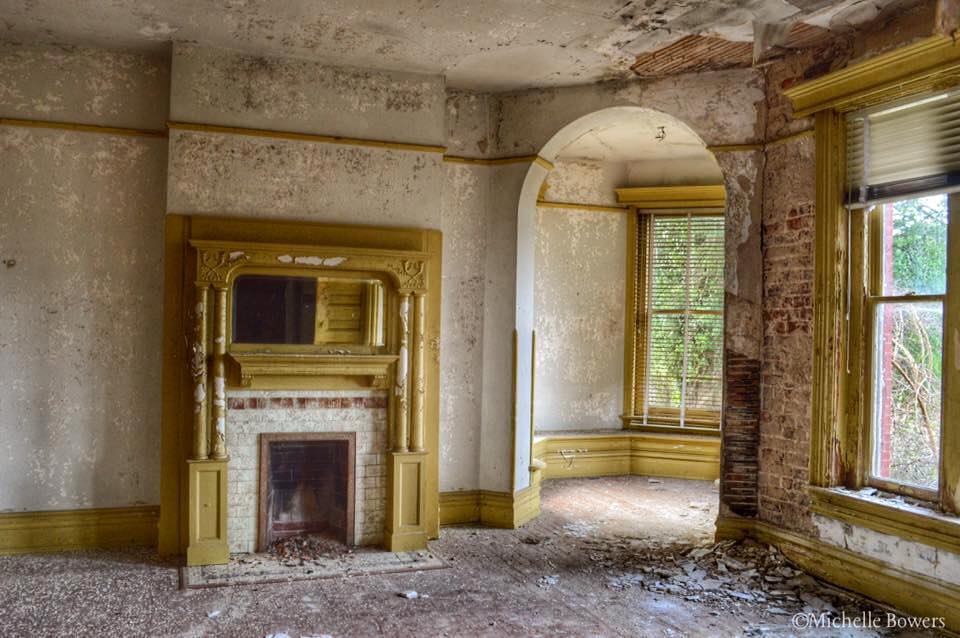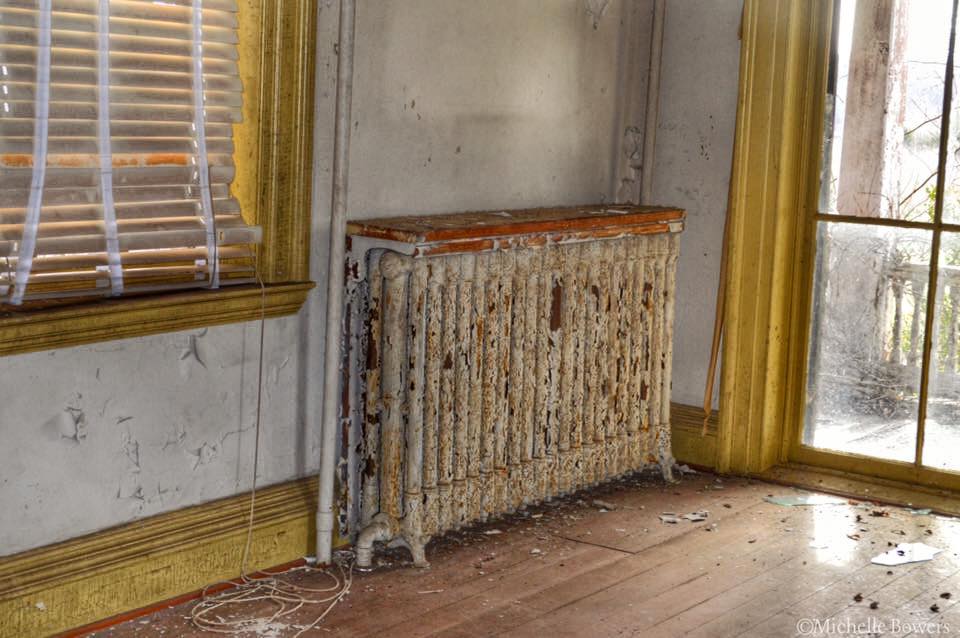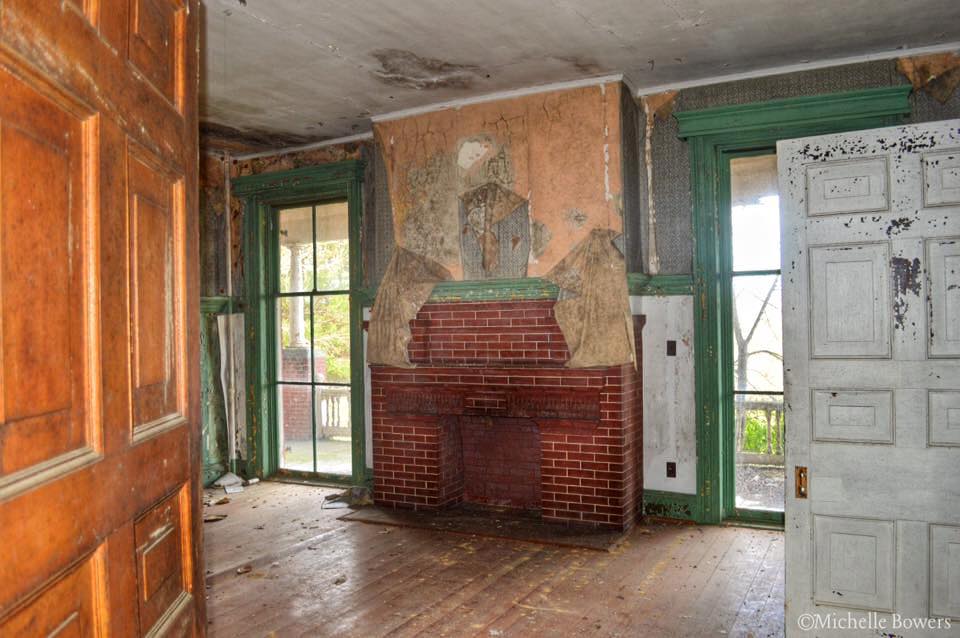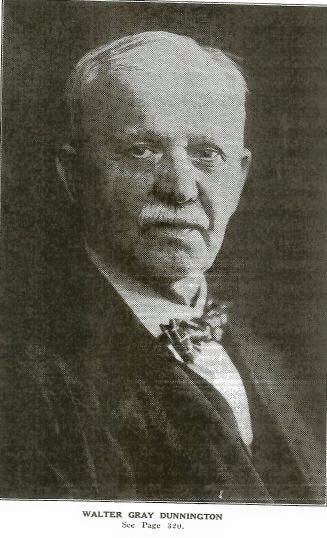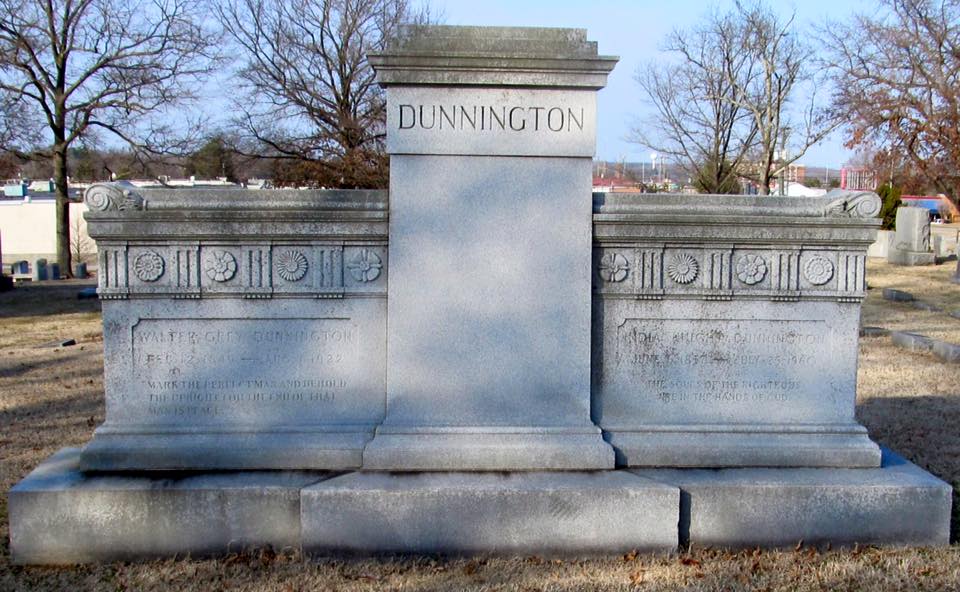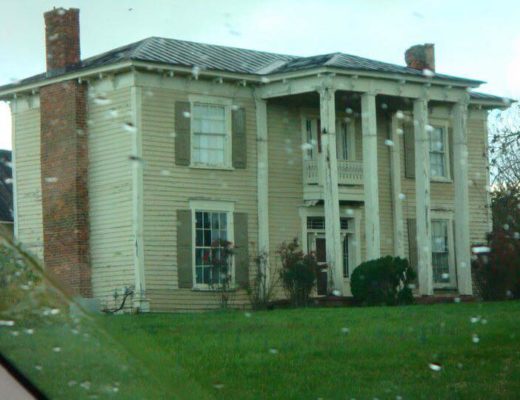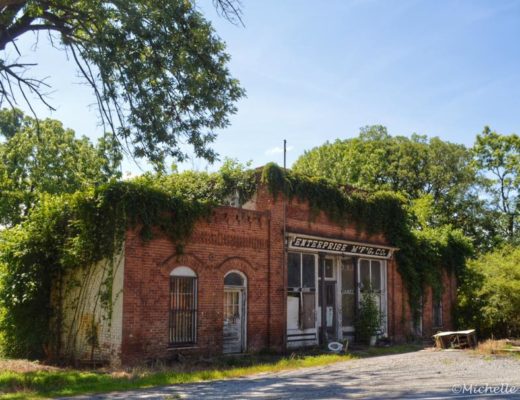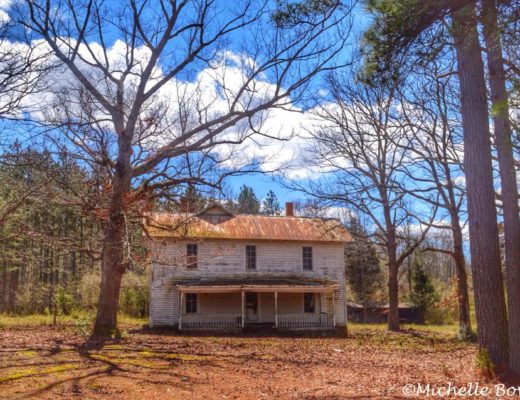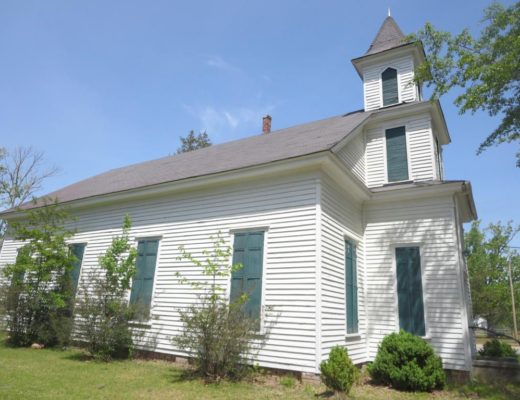
The Dunnington Mansion, also called Poplar Hill in Virginia, has always been one of my favorite houses. It is so amazingly beautiful in person! It is a huge house! The interior has stairs everywhere and it is very easy to get lost in.
Mr. Dunnington was known as a tobacco baron. He often traveled to Italy to sell tobacco grown in the Farmville, Virginia area. Mrs. Dunnington was an avid gardener, which explains the atrium on the side of the house. Inside the atrium there are plant ledges. The ceiling of the atrium has a hand crank and it can be opened to let in rain or more sunlight.
This house could be amazing again, but it would need a lot of work and very soon! The time I went inside the upper floors were a bit scary in some rooms due to water damage. There are obvious signs of mold. Mrs. Dunnington loved to throw lavish parties! Imagine people arriving in their horse drawn carriages! A cool feature, the horse stables are under the house!
Anytime I have posted this house I have heard from people that either worked for the Dunnington’s or their parents did. Most said the same thing that Mrs. Dunnington was the kindest woman and treated the workers’ children like her own grandkids. She would have warm baked cookies waiting for them after school. She allowed them to play hide and seek in the house. That would be an epic game in there!!
Some history from an article I found some time ago:
~~~~~
Poplar Hill –Victoiran-Era Home of the Tobacconist Family the Dunningtons
It is ironic and poetically just that the latest (and presumably the absolutely final) “starting date” for the Poplar Hill Development is in August this year, because August 1st in 1922 was the death of Walter Grey Dunnington, whose ownership name on that property is still the identifiable one for many people in this area…even though the property has passed through several owners in the 82 years since Walt Dunnington’s death.
Many newcomers to our county are not even aware of the existence of this grand old plantation house, which is barely – and quickly (and dangerously!) – visible to vehicular traffic proceeding southward along Route 15. It’s off to the left before one gets to those new storage sheds that are along the Farmville Lake Road. Many folks still call it “the old Dunnington place,” although more recent residents of our county may refer to it as “the Bolt place.” A certain generation still calls it “the old stump farm,” which was its name about a half century ago, after there had been a major cutting of its old growth timber, with dozens of massive stumps being left to rot out there on the rolling hillsides.
My former neighbor, Mrs. Virginia Dowler Dickoff, has pleasant memories fo growing up on the old Dunnington place, when her father had come to Prince Edward County from Canada, to help tend and develop the field crops; presumably her brother Tommy, who still lives near there, has memories of the same. My late church member, Roy Fore, also had delightful memories of his father’s association as a Dunnington employee who tended the large gardens on t he farm; Roy also attributed his own love (and great skills!) for growing vegetable to what he had observed and absorbed from his father’s labors there in the Dunningtons’ family gardens.
The Dunnington Tobacco Company was organized in Farmville in 1870 by Walt Dunnington’s father, James W. Dunnington. This business concentrated at first just on dark-fired tobacco, but it gradually expanded to bright lead as well, as this latter variety of tobacco “took off” with the enormous expansion of the Virginia and North Carolina cigarette manufacturing business at the end of the 19th century. Walt Dunnington joined his father’s business in 1872 and eventually established an international reputation for this family firm, connecting this Prince Edward business with tobacconists in Italy and Austria and, especially, in Norway. According to Herbert Bradshaw’s history of our county, there was one famous day in 1902 when a train of thirty cars loaded with tobacco left from Farmville, all consigned to Norway, via the shipping docks at the end of the Norfolk and Western Railway tracks in Newport News. W. G. Dunnington was also involved in Farmville’s First National Bank and was a co-owner with Walter H. Robertson in the manufacturing of fertilizer under the firm name of the Virginia State Fertilizer Company. Beginning in 1897, he also served our county’s wider community for many years as a member of the Hampden-Sydney College Board of Trustees.
Walter and India Knight Dunnington moved into their Poplar Hill plantation home in 1897. For decades prior to his, there had already been an 18th century house there that was known as “the Wood Plantation home;” in fact, the Dunningtons built their enormous Victorian house around the central core of the Woods’ family house. One of the prior residents of that original house was the Prince Edward native Susan Wood, who as a young woman had met her eventual fiancée, Moses Drury Hoge, while the latter was attending Hampden-Sydney and Union Theological Seminary; Mrs. Susan Wood Hoge eventually became one of the major female religious figures of Civil War Richmond and for the remainder of the 19th century.
Much of Prince Edward County’s (white) business and social life during the late 19th and early 20th century centered around this Dunnington home (now the Poplar Hill Land Development property) a truly grand old manor – equal to the most sumptuous fare one might have imagined in Virginia’s antebellum ear…only now it happened with electricity and running water! Our present-day investors and developers of this property envision something on the same scale. It reminds me of the radio announcer’s voice at the beginning of each episode of the old “Lone Ranger” broadcasts, when he excitedly set the stage: “Return with us now to those thrilling days of yesterday! From out of the past come the thundering hoof-beats of the great horse, Silver! The Lone Ranger rides again!”
We shall see. At their best this new development of this great old property will become a major positive force for all.
The Farmville Herald, Wednesday, August 4, 2004
For those wishing to see this house. It is watched very closely by the golf course management that owns the house and they will call the police on you. At one point they were going to turn it into the golf course clubhouse and as an event venue. When the economy tanked, so did their plans and the house has sat vacant since then. I’ve heard rumors here and there, some being that the development company is in bankruptcy. I have no clue, but it’s what I have heard from locals. My pictures were from two years ago. I have not been back since then to report on its condition.
It could be a beautiful home and it sure is sad to see it wasting away.

